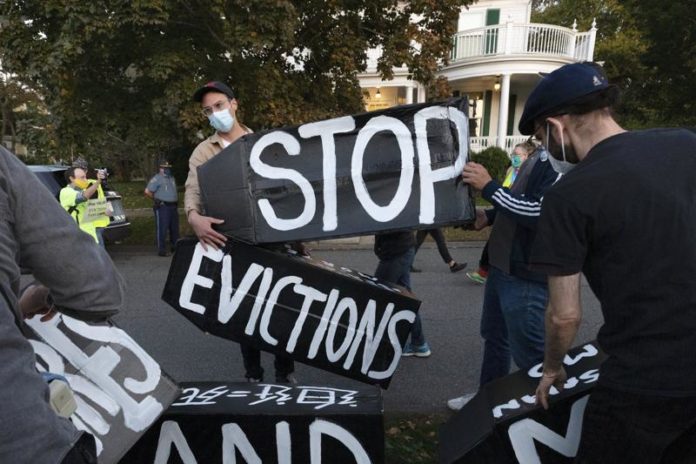
The lower courts in Arizona’s largest county braced Monday for new filings allowing landlords to remove renters for failure to pay after a national eviction ban expired over the weekend, but officials said the brunt of any action isn’t expected for days.
“Some believe there will be a large flood of case activity; others believe it will be just a light sprinkle, which builds gradually over time,” said Scott Davis, spokesman for the Maricopa County Justice Courts that oversee eviction filings in metro Phoenix.
Davis said how quickly or dramatically things play out depends on landlords, who must follow certain legal steps before locking renters out. For a tenant previously protected by the moratorium ban who followed all the rules, a landlord had to wait until Monday to file a writ of possession, starting at least a five-day process unlikely to result in an eviction until next week he said.
“It can be easy to get caught up in the fear scenario that hundreds or even thousands of people suddenly will become homeless this week. This is simply not the case, and the courts have taken steps to ensure this will not happen,” he said.
Elsewhere in the Southwest, rental assistance is available in Nevada, but the burden is on renters, not landlords, to seek help. In New Mexico, a state moratorium remains in place to prevent evictions for non-payment of rent.
In Arizona, landlord advocacy groups like the Arizona Multihousing Association have encouraged members not to evict tenants who have applied for government funds to pay off back rent, but owners don’t have to follow that suggestion.
The association’s president and CEO Courtney Gilstrap LeVinus said last month smaller property owners, in particular, have struggled for months to pay their own mortgages and taxes, with many tenants not paying rent.
“A lot of small landlords are having a very hard time,” said LeVinus.
She said about 11% of the state’s landlords have been forced to sell at least one property, and some 12% have left the rental business entirely.
LeVinus said many landlords are working with tenants to get their back rent, waiving fees, and helping them fill out government relief applications. But only about $67 million of Arizona’s nearly $900 million in rental relief funds had been distributed by late June.
Phoenix tenant Donald Anderson said he was assisted by his own landlord and a dedicated caseworker with a nonprofit that’s helping distribute the government money.
Anderson said working together, they got more than $12,000 in government funds to pay back rent that piled up when he and his wife had to temporarily stop driving for Uber and Lyft.
“Having a cooperative landlord really helps,” he said.
Republished with the permission of the Associated Press.














